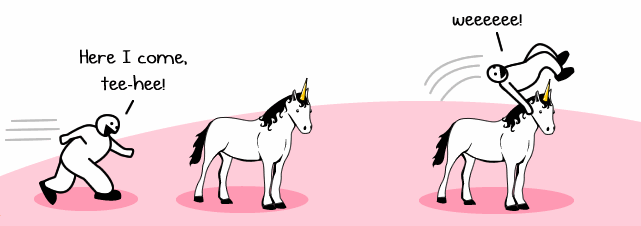How does one properly use i.e. in a sentence? I'm not referring to Internet Explorer.
-
4There are some good answers below, but you also might want to consider not using it and writing "that is" instead. It's just confusing otherwise.– Peter EisentrautCommented Aug 12, 2010 at 21:19
-
9Ah I thought IE as in Internet Explorer– MidhatCommented Aug 13, 2010 at 3:46
-
6@Midhat ha! Based on what I learned below, you could say that as "Ah I thought IE i.e. Internet Explorer" :-)– 7wpCommented Aug 13, 2010 at 5:34
-
4Consider changing the title to say "id est" or "i.e." It'll minimize the confusion a bit.– JagdCommented Aug 13, 2010 at 5:58
-
7"My browser, IE, has crashed 25 times today."– JohnFxCommented Aug 13, 2010 at 6:42
4 Answers
I assume you are referring to the common abbreviation for the Latin id est, which is commonly translated as "that is to say". So, think of the English when you would use it, i.e. when you're about to write i.e. think to yourself "that is to say".
See how I did that? As to the stylistic issue, I would always do it as I did above: lower case, periods in place. A common variant is ie. instead of i.e..
Contrast with e.g. which is from the Latin exempli gratia meaning "for example." One can construct sentences where either one is acceptable, but usually just contemplating the English meaning of each and picking the best fit is the way to go.
If you're referring to Internet Explorer, just say Internet Explorer.
-
3Or "Infernal Exploder".– user362Commented Aug 13, 2010 at 12:54
via http://theoatmeal.com/comics/ie
Ever done this?
"When eating a squirrel taco, Bigfoot always adds extra condiments, i.e., ranch dressing"
This is wrong!
I.e. is an abbreviation of a latin phrase meaning "that is." It's not used for listing examples; it's used for clarifying a statement. Think of it as "in essence" or "in other words." By using it above we're declaring that ranch dressing is the only condiment in existence, which is false.
In the previous example, we should have used e.g., which means "for example."
For example:
"The best way to take out a unicorn is with a Claymore, i.e., a directional mine which explodes shrapnel into a designated kill zone."
Another example:
"Eating a squirrel taco without any ranch dressing is like playing leapfrog with a unicorn, i.e. a very bad idea."

-
2argh you beat me to it! full link here: theoatmeal.com/comics/ie– JinCommented Aug 12, 2010 at 21:15
-
Hah. Nice comic there... though it does sort of ruin the readability of the page.– NoldorinCommented Aug 12, 2010 at 21:16
-
I couldn't resist... I thought the reference to unicorns was quite funny.– 7wpCommented Aug 12, 2010 at 21:18
-
2reformatted for plain text searchability and readability Commented Aug 13, 2010 at 2:34
-
1You may want to add that "i.e." stands for "id est", which means "that is". Commented Aug 13, 2010 at 4:11
If you're referring to Internet Explorer, depending on the context you may have to indicate that it stands for that.
If you're referring to id est, i.e. "i.e.", The Oatmeal has just published a comic on that.
In all seriousness though, you use it to mean 'that is' or 'in other words' or 'in essence'. When you're explaining something, you use i.e. or its synonymous English phrases when you are about to express the explanation in different terms, as a means of clarity for instance.
i.e. is an abbreviation for the Latin "id est", meaning "that is" (or more loosely, "in other words"). Its English usage follows precisely as such. The abbreviation is simply used to signal that the following phrase is another way of expressing the preceding phrase.
(Note: i.e. is often misused to indicate an example; this is incorrect. Always use e.g. in that case.)
-
"It's English usage"?????– deleteCommented Aug 13, 2010 at 2:36
-
2
-
